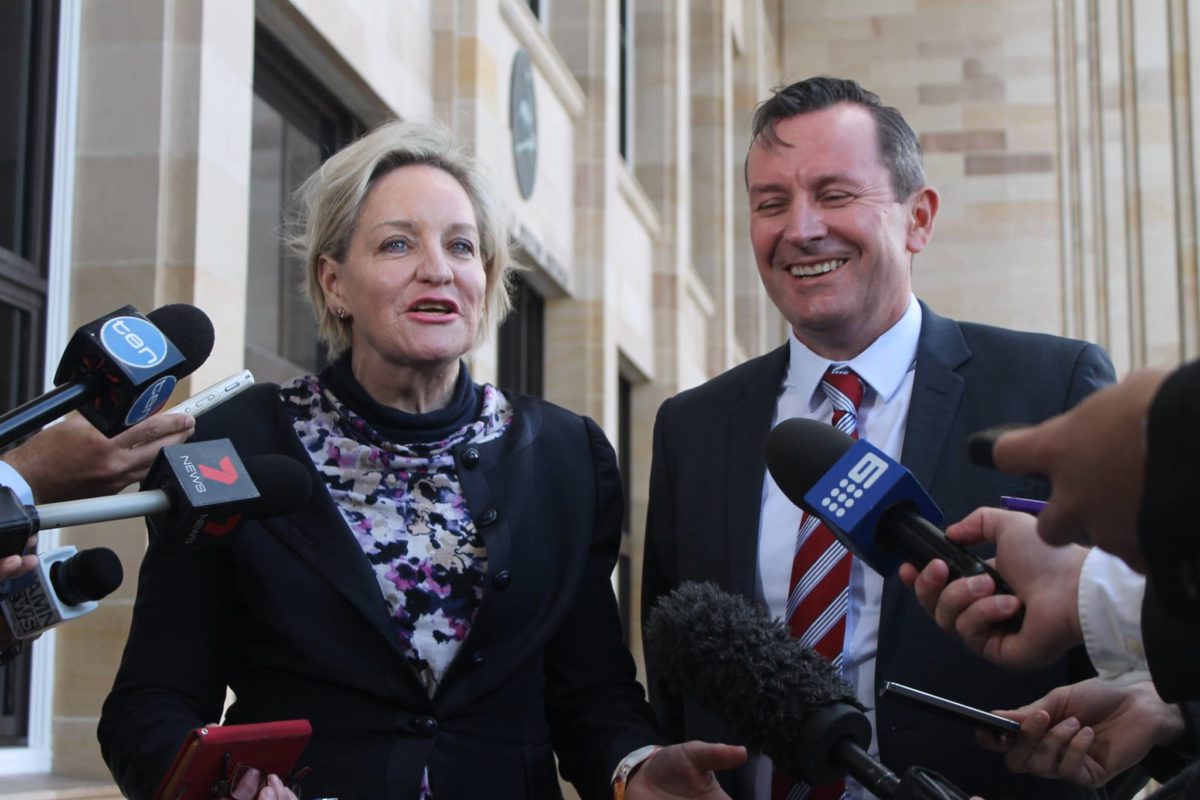The Smart Energy Council’s (SEC) Zero Carbon Certification Scheme (Scheme) has received a big boost this week after the Western Australian (WA) McGowan Government signed on as a founding partner.
WA joins the Queensland, Victorian and Australian Capital Territory (ACT) governments, the Australian National University (ANU), the German Energy Agency and a growing list of commercial, industrial and scientific partners, including Norwegian chemical company Yara which is already looking to have its green hydrogen and ammonia production and export facility in the Pilbara certified under the Scheme. The McGowan government has already invested $2 million in Yara and Engie Renewables Australia’s YURI Green Ammonia Project.
Really fantastic to have the WA Government as a Founding Partner in the @SmartEnergyCncl @HydrogenAus Zero Carbon Certification Scheme, joining ACT, Victorian and Queensland Governments and 11 others.
Thank you for your leadership @AlannahMac pic.twitter.com/QcdFS7EMyL
— SmartEnergyCouncil (@SmartEnergyCncl) July 21, 2021
The Scheme was launched by the SEC in January with the aim of providing a guarantee of origin for hydrogen and its derivatives as Australia pursues a leadership role in the evolving hydrogen economy. This was followed last month by the Commonwealth government’s Department of Industry, Science, Energy and Resources which released a discussion paper on an Australian hydrogen Guarantee of Origin certification scheme (GO scheme) as part of its National Hydrogen Strategy.
However, considering the recent double standard by the federal government in relation to the 26 GW Asian Renewable Energy Hub, and the doubling down by the project’s consortium by announcing an even larger 50 GW Western Green Energy Hub, it looks as if WA is not going to wait for the federal government to get its act together.
The industry-led Scheme aims to accelerate the development of green hydrogen and its derivatives, rather than simply categorising hydrogen from a technological neutral position. According to a statement from the WA government, the SEC’s Scheme “will certify the renewable hydrogen, green ammonia or green metal has been made from renewable energy sources, and provide an embedded carbon rating. It will operate as a tracking system for the amount of greenhouse gas emissions connected with the production.”
WA Hydrogen Industry Minister Alannah MacTiernan said the state already has a head start thanks to its competitive advantages when it comes to green resources. “Signing on to the Smart Energy Council’s Zero Carbon Certification Scheme as a founding partner reflects our commitment to making sure Western Australia continues on its path to becoming an industry leader,” MacTiernan said.
“As a founding partner,” continued MacTiernan, “our Government will collaborate with the Smart Energy Council and its other domestic and international partners to develop and implement the scheme.”
Certification is a global concern
It is not surprising that the peak German energy body was also a founding partner of the Scheme, as countries across the globe in need of green fuels to cut their emissions and power their futures are putting their faith in Australia’s potential.
At the recent pv magazine Roundtables Europe 2021 event, Aurélie Beauvais, Deputy CEO SolarPower Europe noted one of the most important aspects of the development of green hydrogen at the moment is certification, which is to say, how we can know whether a hydrogen molecule is green or blue or grey or brown. “How can we define and certify renewable hydrogen,” Beauvais said, “and how can we make sure we are not double-counting the electron that’s produced?”
In a recent forecast which predicted Australia’s low-carbon hydrogen export revenue could reach US$90 billion by 2050, Wood MacKenzie’s head of markets and transitions, Prakesh Sharma, “a stable and reliable source of low-carbon hydrogen supply becomes essential because it is impossible to tell how a given molecule of hydrogen has been produced. A guarantee of origin is therefore crucial to allow for minimal environmental impact, i.e., carbon leakage.”
“Standards also help with risk assessment and transparent market pricing,” Sharma continued. “Australia stands to benefit as rules of hydrogen shipping, transport, storage and product quality are set and accepted internationally.”
This content is protected by copyright and may not be reused. If you want to cooperate with us and would like to reuse some of our content, please contact: editors@pv-magazine.com.









By submitting this form you agree to pv magazine using your data for the purposes of publishing your comment.
Your personal data will only be disclosed or otherwise transmitted to third parties for the purposes of spam filtering or if this is necessary for technical maintenance of the website. Any other transfer to third parties will not take place unless this is justified on the basis of applicable data protection regulations or if pv magazine is legally obliged to do so.
You may revoke this consent at any time with effect for the future, in which case your personal data will be deleted immediately. Otherwise, your data will be deleted if pv magazine has processed your request or the purpose of data storage is fulfilled.
Further information on data privacy can be found in our Data Protection Policy.